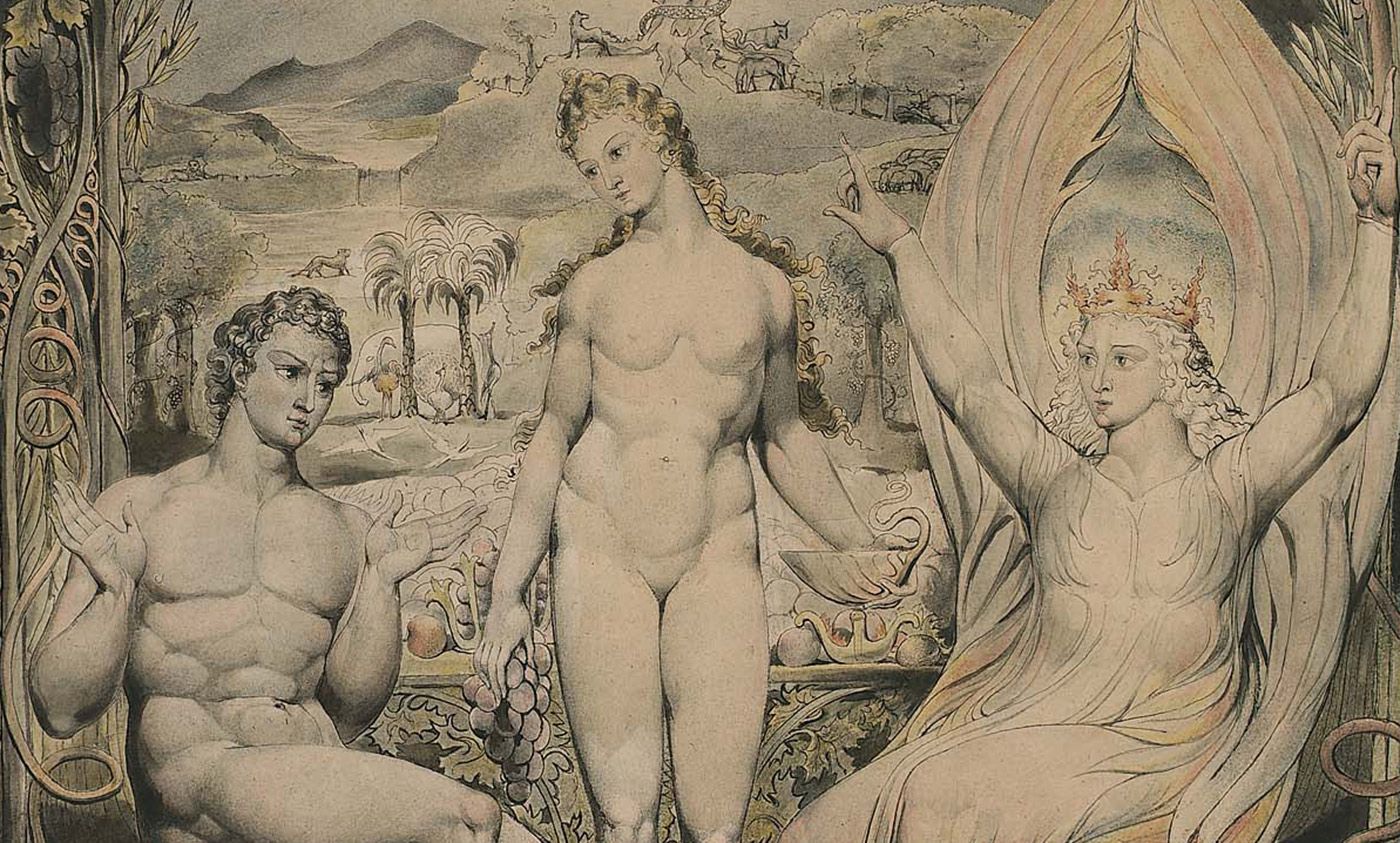by ED SIMON
 The Archangel Raphael with Adam and Eve (an illustration to Milton’s Paradise Lost) by William Blake (1808). PHOTO/MFA Boston
The Archangel Raphael with Adam and Eve (an illustration to Milton’s Paradise Lost) by William Blake (1808). PHOTO/MFA Boston
Paradise Lost (1674) is a consummate example of scientific literature. In it, John Milton effectively mimics the debates that motivated the New Science of his era, and the result is a poem that is ‘scientific’ not just because its content sometimes concerns nature, but also because its rhetoric imitates the emerging scientific method. And much of that, I argue, is due to Galileo, the man whom Milton described as ‘the Tuscan artist with optic glass’.
For readers who half-remember Milton from an undergraduate survey course, this might be a surprising contention. While the poet still generates reams of journal articles, dissertations and academic books, when the general public thinks of him, it’s often as a dour Puritan poet writing dour Puritan poetry (which assumes that ‘Puritan’ is even an appropriate designation for him). But in fact his greatest work depicts, among other things, how scientific debate operates.
Far from seeing themselves in opposition to natural philosophy, many Puritans embraced empirical science as a practical application of their religious understanding, and while the simplistic reductionism that views the scientific revolution as a direct product of the Reformation has been made more nuanced by subsequent historiography, it remains true that many Puritans of Milton’s era celebrated the burgeoning scientific method as an extension of their own theology.
Consider the scientist and philosopher Francis Bacon, writing a half-century before Paradise Lost. While not a Puritan per se, he was a steadfast Protestant who appropriated the language of the Reformation in his defence of the emerging science. Or examine the career of the American theologian Jonathan Edwards, writing a century after Milton, who is mostly remembered as the author of the hellfire sermon ‘Sinners in the Hands of an Angry God’ (1741). The historian George Marsden writes in Jonathan Edwards: A Life (2003) that the preacher was ‘profoundly influenced by Isaac Newton’ and that like ‘many men of his time, Edwards was determined to know everything and how it all fit together in God’s universe’. If Puritanism has an innate attraction towards a certain variety of scientific positivism, and if Milton is the most celebrated of Puritan poets, it would stand to reason that those scientific enthusiasms would be present in Paradise Lost.
The poem, a 10,000-line epic about the Fall of Man and the ‘ways of God’, is the earliest and greatest example of a neglected literary genre – the scientific epic. What are the poetics of science, and what is a scientific epic? This is a poem that not only takes as its subject scientific topics but that also replicates a spirit of rational skepticism. There are surprisingly few texts that do this: that take the drama of scientific discovery, and of the worldview that makes that progress possible, as their subject.
Aeon for more
